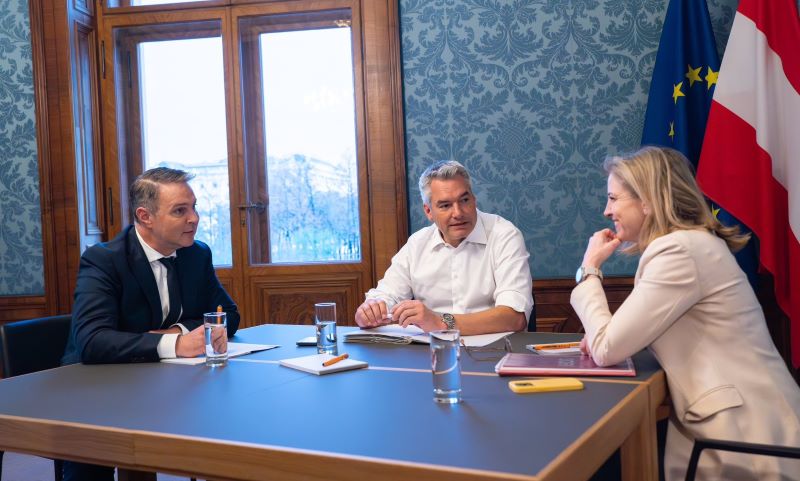In Austria’s coalition negotiations, the economic cluster has emerged as both the most critical and contentious area, with its resolution seen as vital to shaping the country’s future as a competitive economic hub. Discussions in this cluster—focused on tax policy, economic competitiveness, energy, and tourism—have highlighted sharp ideological divides, particularly over taxation. Key figures leading these talks include Wolfgang Hattmannsdorfer (ÖVP), Michaela Schmidt (SPÖ), Sepp Schellhorn, and Markus Hofer (Neos). Other prominent participants include Peter Hanke (SPÖ) and Peter Haubner (ÖVP).
While subgroups in areas like constitutional law, headed by Karoline Edtstadler (ÖVP), Eva-Maria Holzleitner (SPÖ), and Neos representatives Nikolaus Scherak and Stephanie Krisper, are reportedly progressing smoothly, the economic discussions are marked by deep-seated disagreements. The ÖVP has firmly opposed any new taxes, whereas the SPÖ insists on revenue-raising measures to stabilize the budget, citing support from Fiscal Council Chair Christoph Badelt. The Neos, meanwhile, align closely with the ÖVP in rejecting higher taxes.
Negotiators described the first week as a period of mutual observation, with parties outlining their positions but struggling to find consensus. While some participants noted gradual improvement in dynamics, others described the process as frustratingly circular, reflecting the stark ideological differences. The ÖVP and Neos have established common ground, leaving the SPÖ isolated in key debates.
Chancellor Karl Nehammer heightened tensions on Friday by sharply criticizing an SPÖ position paper advocating wealth taxes. Taking to social media platform X, he warned, “If the SPÖ insists on this, the negotiations will end quickly.” His combative tone underscores the precariousness of the talks.
Observers within the process emphasize that progress depends significantly on interpersonal dynamics. Negotiations tend to advance more smoothly where mutual respect and pragmatic attitudes override ideological rigidity. As the coalition seeks to deliver initial outcomes across all clusters by 12 December, the economic discussions remain a pivotal challenge that could define the success or failure of the government formation efforts.





